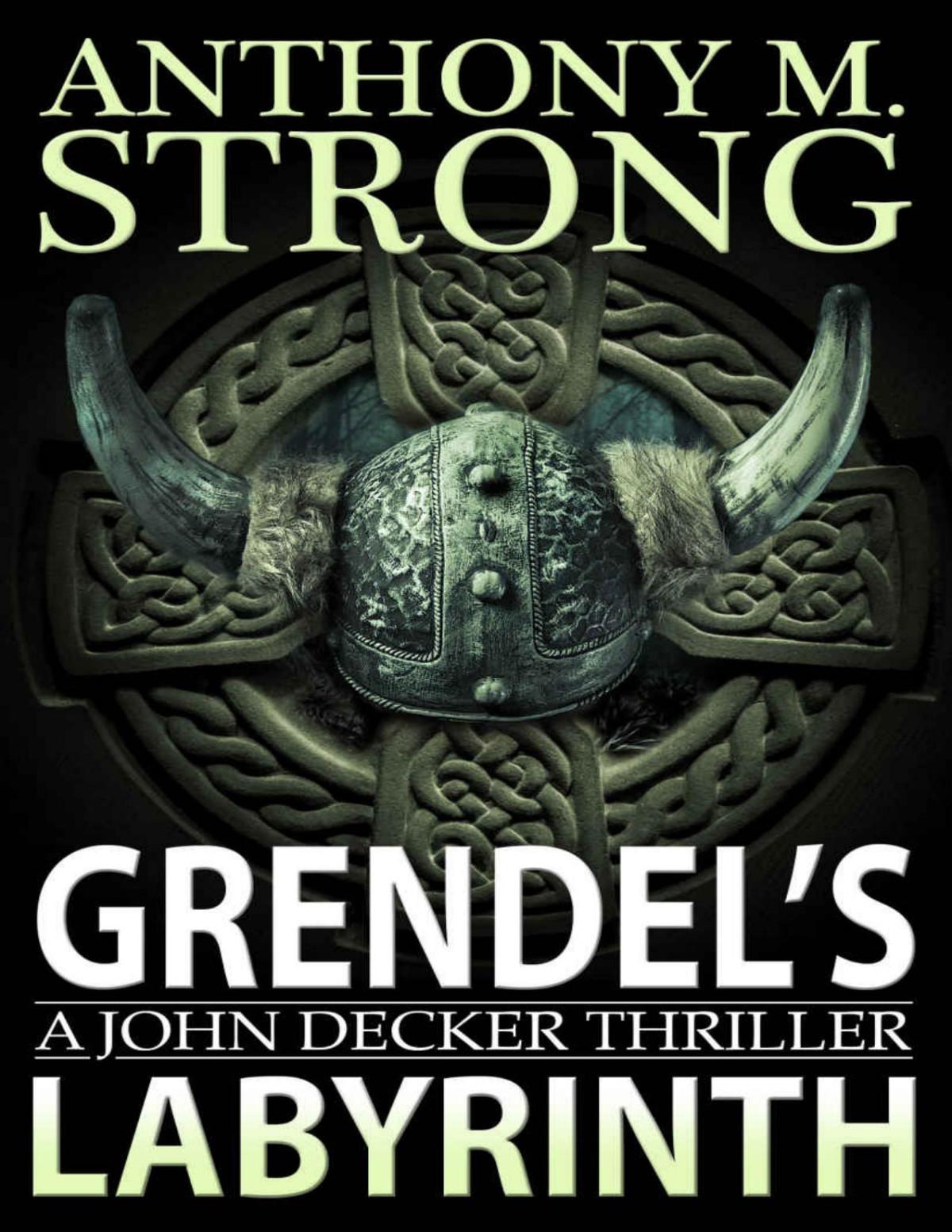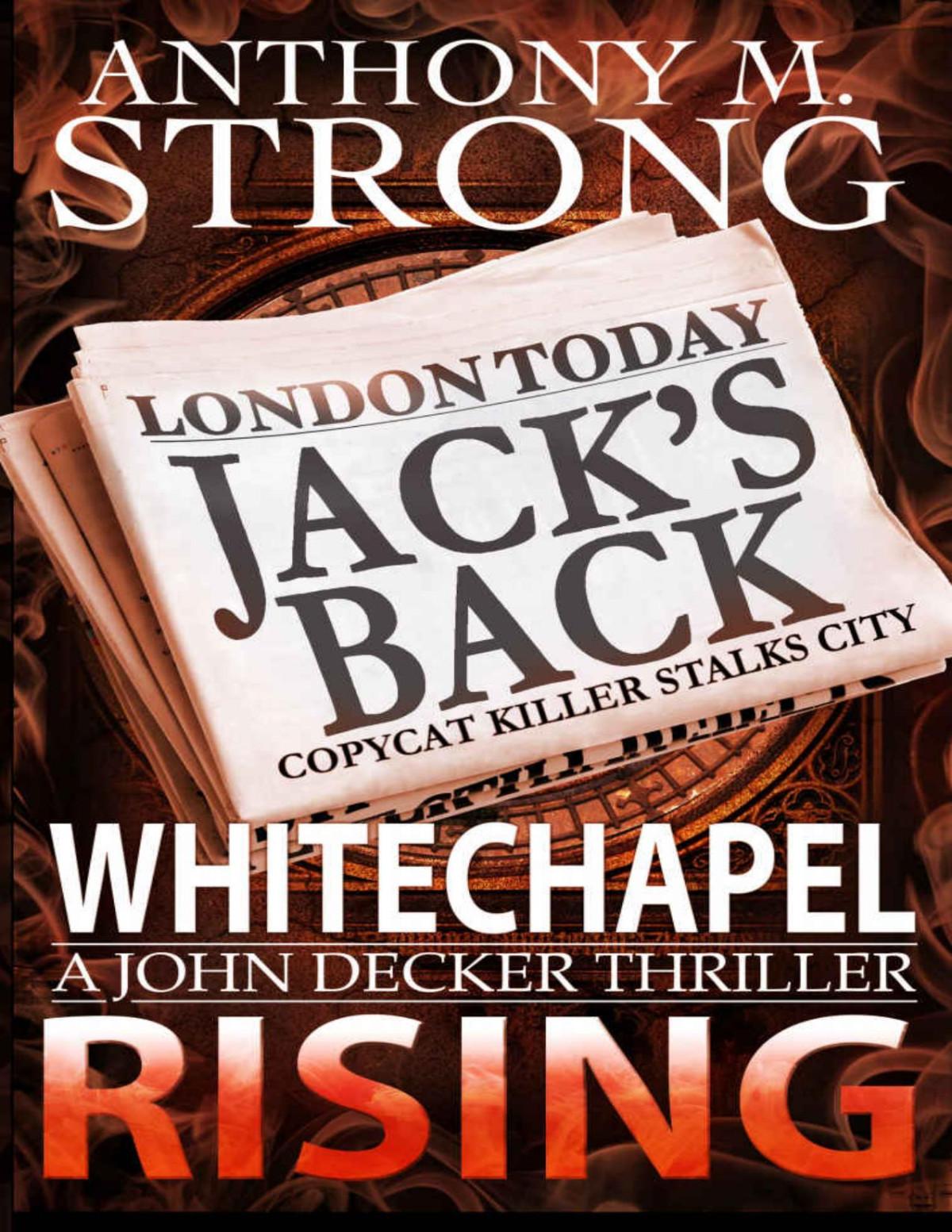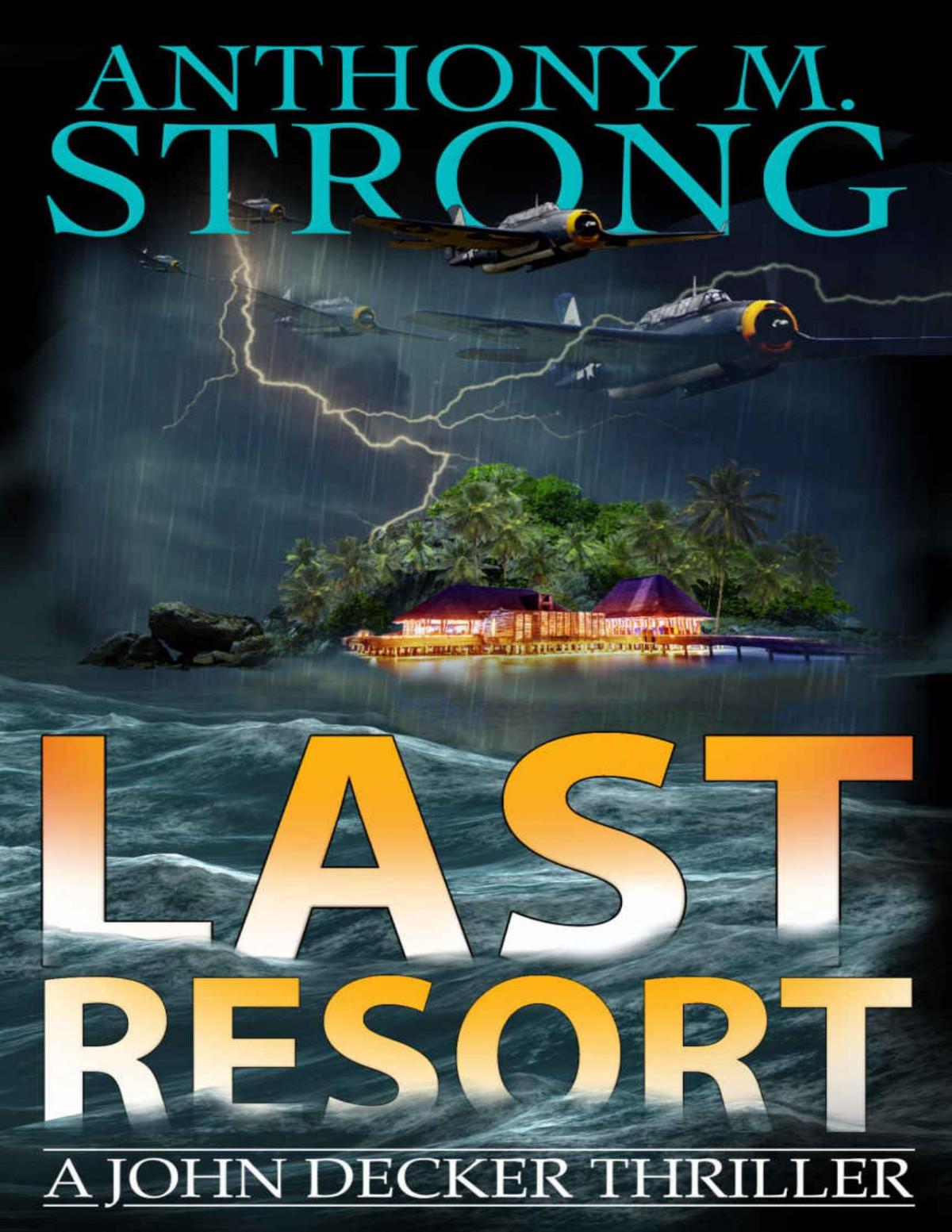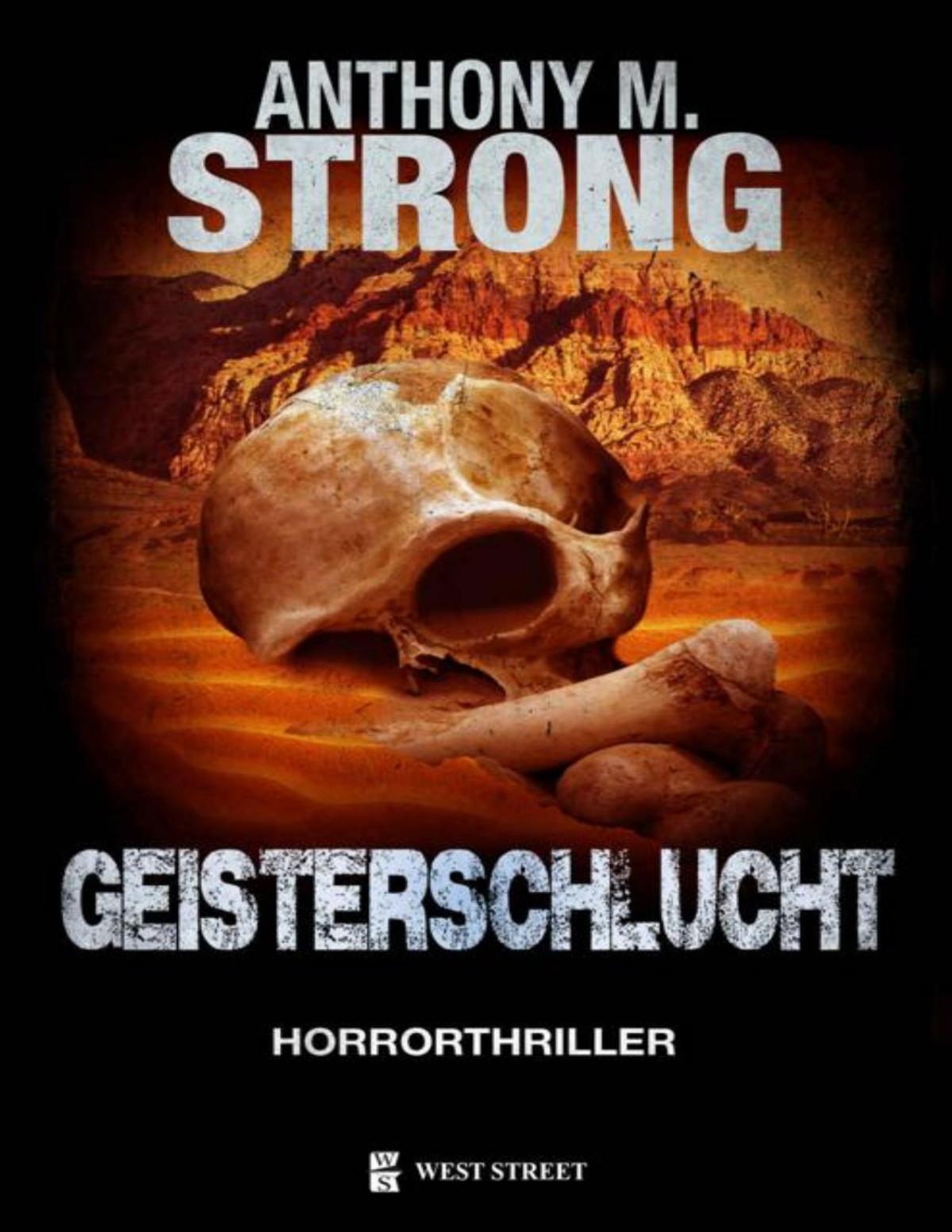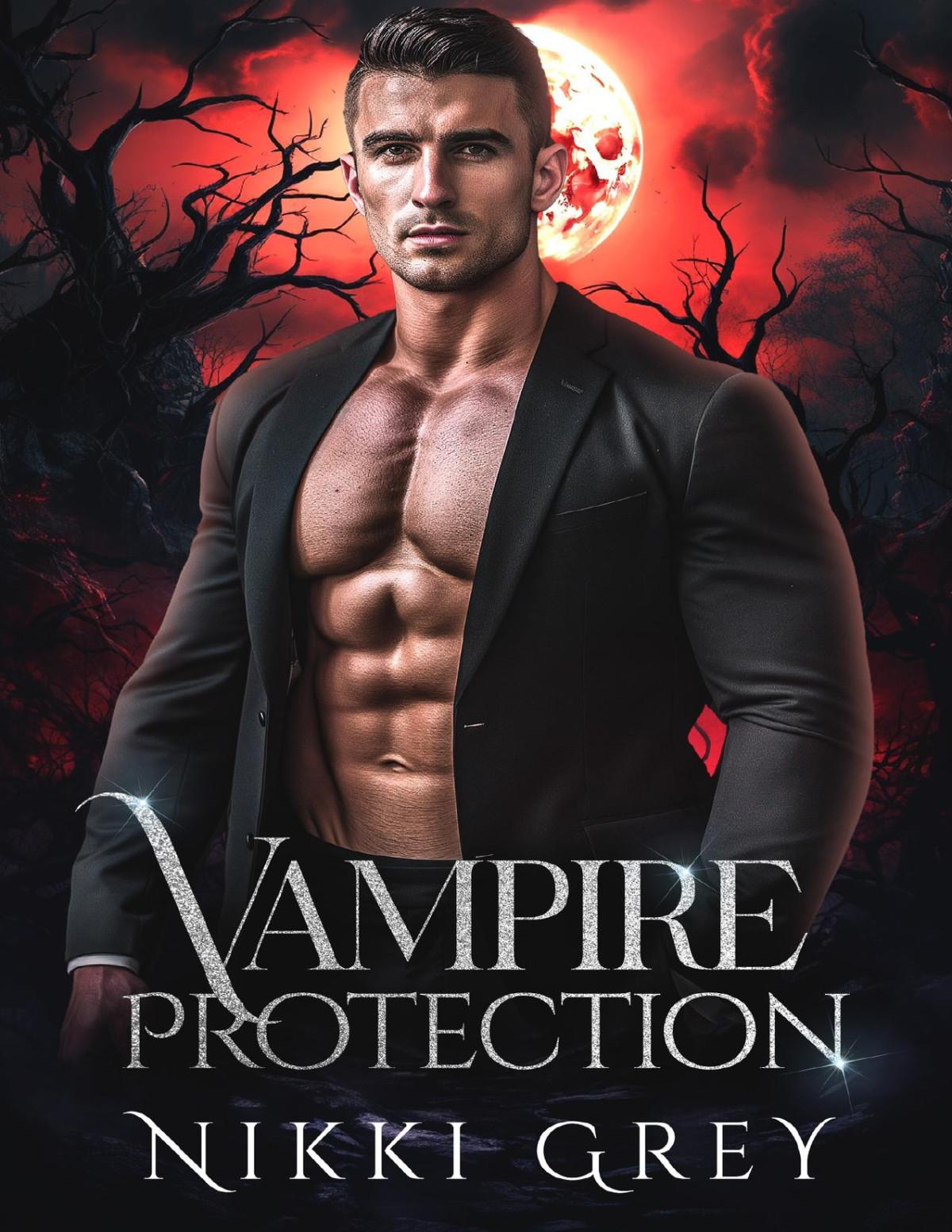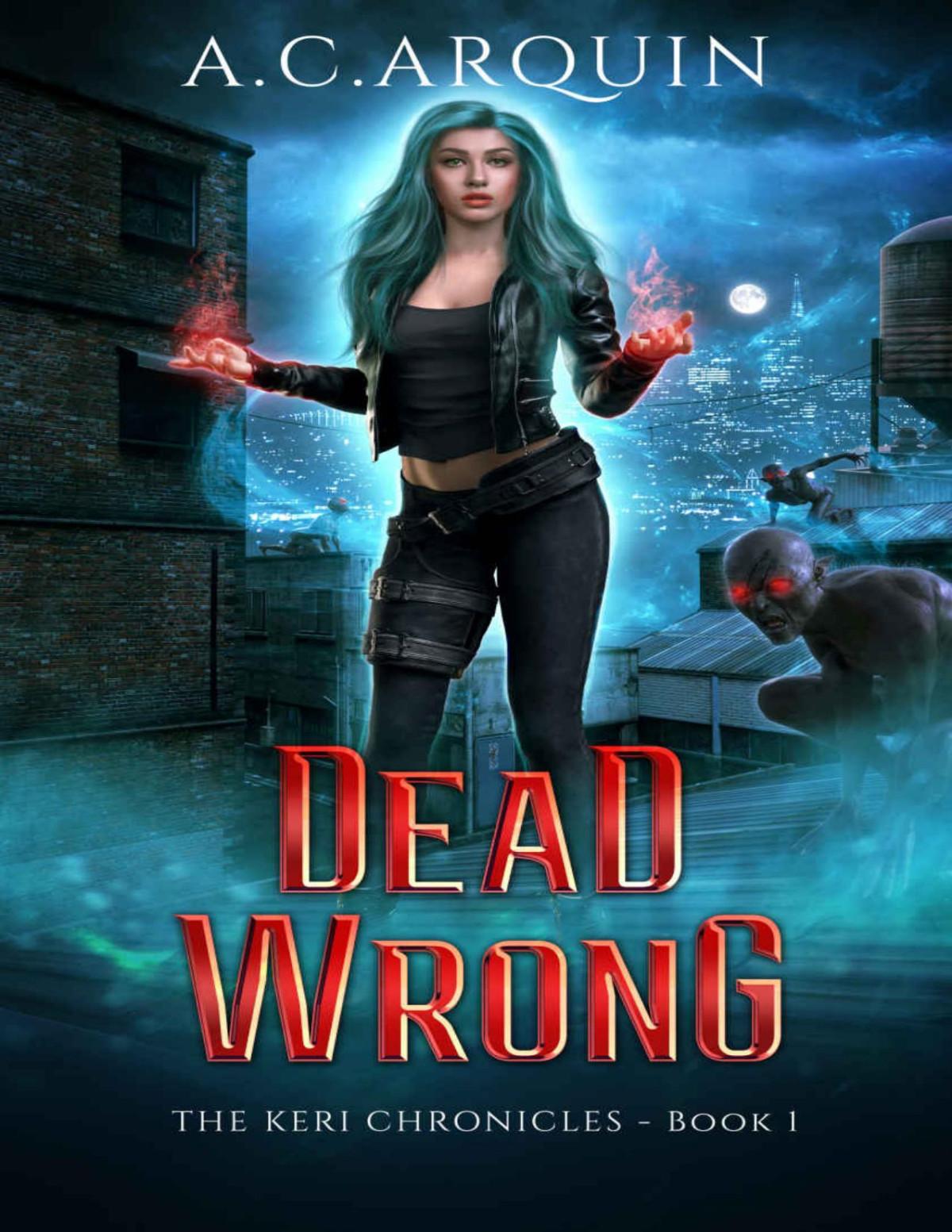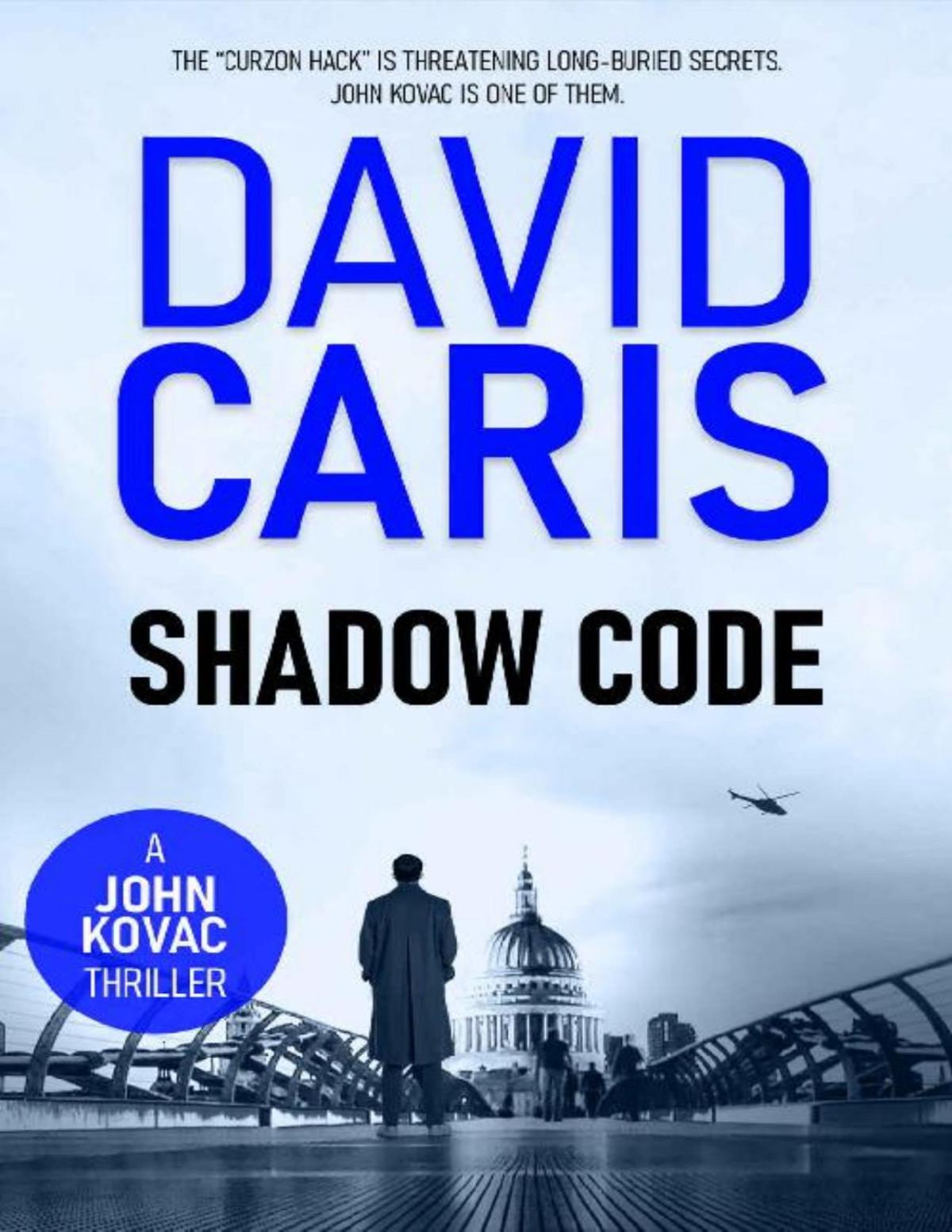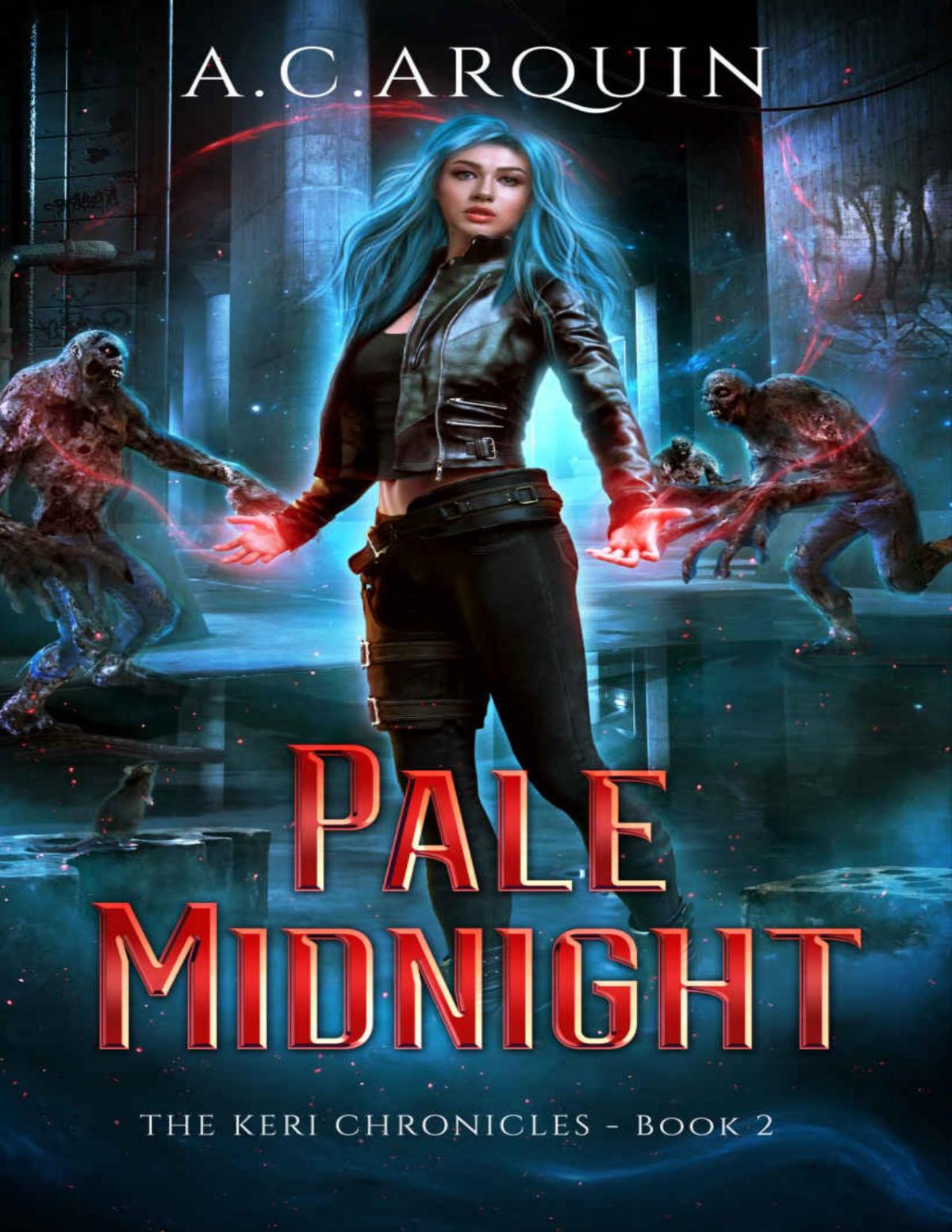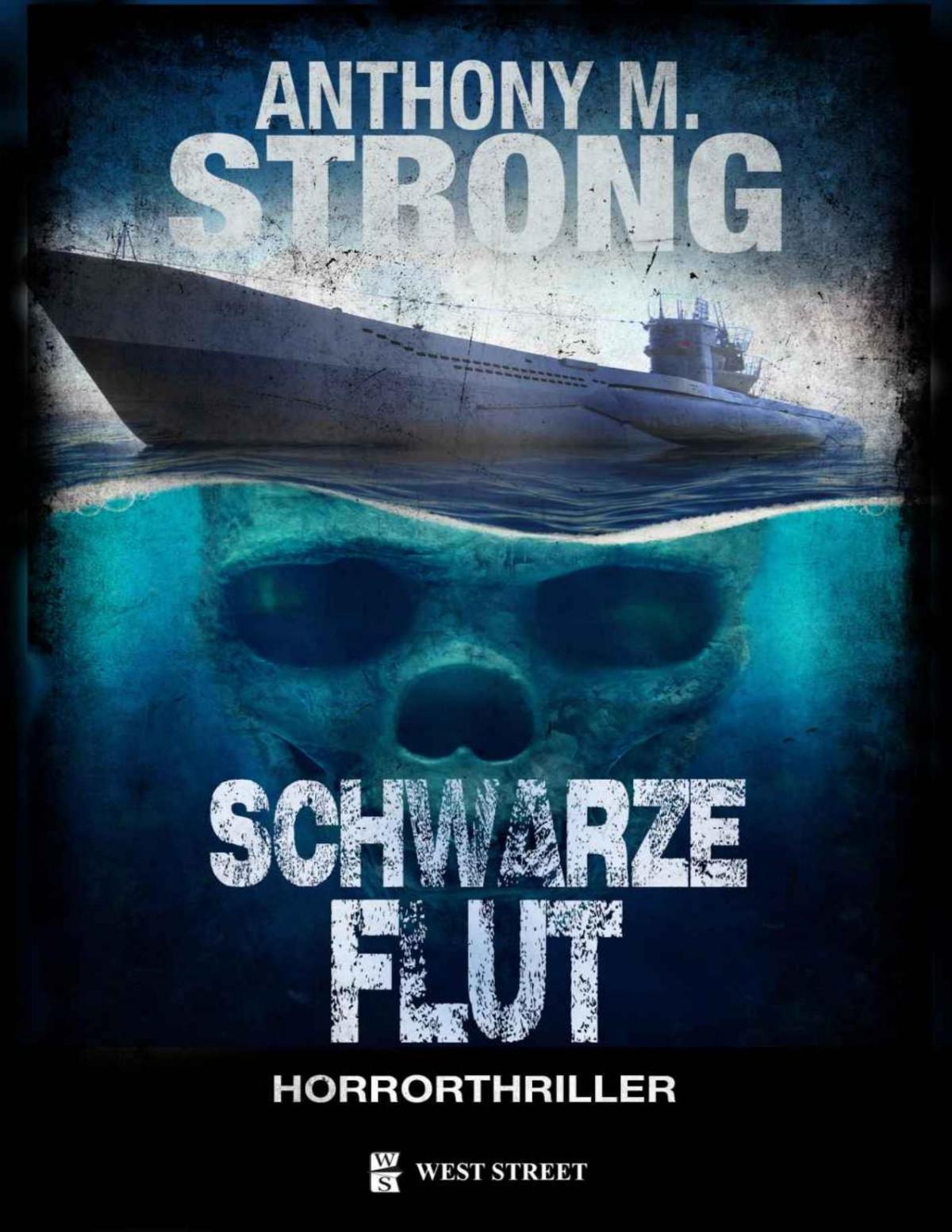Prologue
Ireland – 1495 A.D.
BROTHER DEAGLÁN Ó COILEÁIN laid down his bible on the small wooden desk, pushed his stool back, and stood up. Having spent the last several hours in silent prayer, he now felt the first flutters of uncertainty for the duty which lay ahead.
He crossed to the window, looked out over the darkened evening landscape, toward the barely perceptible flickers of yellow light that marked the distant village. It was the tithes from this small community that kept the monastery in operation. If the villagers only knew the true purpose of the holy building, and the evil it guarded, they might rethink their decision to live in such close proximity.
Brother Deaglán sighed.
The time was drawing close.
As if to underscore this awareness of the approaching hour, a light knock interrupted his introspection.
Deaglán turned toward his cell door but said nothing in response. He hadn’t spoken a word for twelve years, since joining the order as a fourteen-year-old boy and taking a vow of silence. Even so, he made his way to the door, touching the treasured bible one last time on the way out. Two monks stood in the corridor, older men who had been instrumental in his spiritual training. Now they waited for him to join them on one last journey, their hands clasped together, lips moving in silent devotion.
Deaglán allowed himself to be led along dim passageways. They moved single file, one monk ahead of him, and one behind, until they reached the monastery’s nave. Here in this holy place, candles burned, casting pools of yellow light into the frigid air and throwing long shadows. This was not, however, Deaglán’s ultimate destination. They continued on, through the south transept, and down a set of narrow stone steps that wound into the underbelly of the building.
The crypt was noticeably colder than the nave, surrounded as it was by thick windowless stone walls that held back the frozen earth
beyond. The air was stale, as if it had been trapped here for an eternity. Deaglán wondered if it was the proximity to what lay ahead that tainted the atmosphere so. This place was the opposite of all that went above. It was unholy. Godless. A chamber older than anyone could recall, over which the monastery’s stones and timbers had been placed. This was, he thought, the last place on earth anyone should ever be. His mere presence felt blasphemous.
They moved through the crypt, and under an archway, into a second, larger room. Here a clutch of his brethren stood motionless, their features transformed into ghastly caricatures by the flickering light from torches placed in notches along the walls.
They watched as he entered, and in their eyes, Deaglán sensed a deep sadness - and something else. Fear.
The abbot, a sickly thin man with graying wisps of wiry hair clinging to his scalp, nodded a somber greeting. He broke from the monks and proffered a flaming torch.
Deaglán nodded a grim acknowledgment and accepted the offering, the sudden heat a welcome respite from the biting chill.
In front of him stood a door of sturdy oak secured with a mighty iron bolt. Intricate carvings had been cut into the wood, demons that clawed their way up from a rendition of hell that he recognized from the darker passages of his bible.
As Deaglán approached, the monks parted to allow him passage. At the door he paused. His previous trepidation now flared into a writhing terror. This was the moment he had been preparing for since he entered the monastery. Over those many years he had witnessed others, those that came before him, linger in this exact spot. He had stood voiceless as they stepped through this very door.
And he had listened to their dying screams.
Now, as he gathered the will to keep going, Deaglán found that his faith was not the comfort he hoped it would be. But it was too late now, he must honor his commitment. Deaglán drew back the bolt. The door creaked inward. He glanced back, at the gathered monks, then proceeded into the darkness beyond.
Behind him, the door slammed shut. A scrape of metal on metal indicated the securing of the bolt, and the finality of his situation.
The torch flickered.
Deaglán squinted into the gloom and found himself in a tight vaulted corridor with walls lined in stone. Up ahead was another door, this one hardly ornate, made of roughhewn planks. A thick beam slotted into brackets in the frame held this one more securely than the first.
Deaglán approached the inner door. He could feel his heart thudding in his chest. Blood roared in his ears. Now he faltered. What horrors waited on the other side of this portal?
But there was no turning back. The outer door was already locked, and the monks on the other side, the same people he had broken bread with for so many years, would never allow him to return. This was too important. More so than one lonely life. So Deaglán gathered his courage, said a last prayer, that his death would be quick, and heaved the beam aside.
The darkness beyond the second door was absolute. The torch barely made a dent in the blackness, but Deaglán could tell that the walls were now rough stone. Gone were the smooth blocks that lined the crypt and flagstones that paved the ground. This was a cave. More than that, it was a labyrinth.
Deaglán’s hand shook. The torch flame leaped and danced, flickering on a chill breeze. Then, before Deaglán could protect it, a swift gust snatched the light away.
The torch blew out.
Deaglán was drenched in absolute blackness. He stopped, fighting the urge to flee back to the locked and impassable door. His breath came in ragged, terrified gasps.
From somewhere ahead, a grunt, low and menacing.
Deaglán dropped the useless torch, put his hands together and kneeled on the soft earthen floor He turned his face upward to heaven and begged the Lord to deliver him from his fear.
Another grunt, louder this time, came accompanied by a blast of fetid, foul air.
Deaglán wretched on the carrion stench. He could feel his hands trembling in the dark, even though he could not see them.
Something brushed against his face, a light touch that moved across his cheek and lingered on his neck. It felt like… a fingernail, long and sharp.
Deaglán recoiled, his skin crawling. Hot, rancid breath wafted toward him.
Whatever he shared this chamber with was close. Inches from his face. He could sense it. He also knew that even though he was blind, the creature that stood before him was not. It could see him as if it was daylight. Worse, it was relishing his terror, lapping it up the way a deer drank at a cool stream.
Deaglán’s mind snapped.
He forgot about prayers to a god he knew had abandoned him. He didn’t care about the monks that were depending on him to fulfill his duty. All Deaglán wanted in that moment, was to escape the fiend that circled him, feeding on his fear. But there was nowhere to go, because he could not see, and a sturdy door carved with the likeness of demons blocked his only escape route. So instead he coiled into a ball and began to cry. And then, as unseen hands lifted him from the floor, and unseen jaws ripped into his trembling flesh, Deaglán broke his vow of silence for the first time since entering the monastery and screamed.
Chapter 1
Off the Coast of New England - Present Day
THE LATE MORNING sun glinted off the Gulfstream jet’s sleek fuselage as the aircraft flew northeast following the New England coast. Below them, a blanket of silky white clouds stretched beyond the horizon. Soon, the jet would cross into Canada, and Newfoundland, where they would turn further east and onward toward their destination. Dublin, Ireland.
Hours earlier Decker had left Nancy at the hotel and took a cab to the executive airport. He’d been reticent to leave her behind in Florida, but his old friend, Bill Gibson, had promised to be there should she need him. Besides, there was still a week of their vacation left, and Decker didn’t want her to miss out on that. She would, he knew, fill her days with trips to the beach and hours in the hotel spa, activities which Decker had little interest in.
Upon arriving at the airport, a pair of burly men in black suits and dark sunglasses had met Decker. With stiff professionalism that reminded him of the Secret Service operatives with whom he had crossed paths once or twice during his stint as a New York detective, they escorted him to a private hanger on the far side of the airfield. Here a plain white unmarked Gulfstream G550 sat fueled up and waiting.
So was Adam Hunt.
He stood at the bottom of the air stairs with his arms folded. If he was pleased to see Decker, he did not show it, but merely turned and ascended the stairs without waiting to see if Decker would follow him up.
As they entered the plane, Decker reached out and tapped his new employer on the shoulder. “You told me yesterday that there would be a travel bag packed for me. I don’t see one.”
“I took the liberty of purchasing all that you would need,” Adam replied without turning around. “Have no fear. Your bag is stowed already I think you will find the selection of clothes to be more than satisfactory.”
“You don’t even know my size,” Decker replied.
“If anything doesn’t fit, feel free to purchase more clothing after we arrive in Ireland.” Hunt stopped now and turned back to Decker. He held out a passport. “You’ll need this.”
Decker took it, noting the date of issue, just a few days prior. “You thought of everything.”
“Indeed.” Hunt resumed his entry onto the aircraft. “Shall we take our seats? The cabin crew will not serve coffee until we are at cruising altitude. Therefore, I intend to be at cruising altitude as swiftly as possible.”
Now, hours later, Decker relaxed in the jet’s luxurious cabin, sitting in a white leather seat more sumptuous than any airplane seat he’d ever occupied before. Facing him in another similarly wellappointed seat, Adam Hunt reclined with his eyes closed, hands placed neatly in his lap, as if he was sleeping. But he was not.
“Rory,” Adam said to the occupant of a seat across the aisle. “Now that we are well and truly underway, why don’t you fill Mr. Decker in regarding our little jaunt.”
“Right you are.” Rory McCormick was a diminutive man in his late thirties, barely five feet tall, with a crop of shaggy straw-blonde hair. He had been introduced as the expedition’s archeologist, a role which Decker found intriguing, but upon which Hunt initially refused to elaborate. Now he leaned forward, eyes sparkling with scholarly excitement. “Have you ever heard of the Anglo-Saxon poem, Beowulf?”
“Sure.” Decker nodded. “Wasn’t it something about an ancient warrior slaying an ogre?”
“A clumsy description,” Rory said with a wry smile. “The poem tells the story of our titular hero, Beowulf, who comes to the aid of the Danish king, Hrothgar After a mighty battle, he slays the beast, Grendel, a disfigured and terrifying creature that has been devouring the king’s men while they sleep in the great hall. He then kills Grendel’s mother by cutting off her head.”
“A nice story,” Decker said. “But I don’t see what any of this has to with us going to Ireland.”
“Listen up, and you might find out,” Adam said, his eyes still closed.
“Exactly.” Rory licked his lips and removed an invisible speck of lint from his jacket. “There’s only one copy of the poem known to exist–a manuscript known as the Nowell Codex. But here’s where it gets interesting. Several years ago, NYPD confiscated a batch of ancient writings during the bust of an international antiquity smuggling operation in New York. Those documents contained an even older, more complete telling of the Beowulf story. In this version, the hero kills Grendel, and then the Danes, fearing him even in death, transport the body across the sea to Ireland. Here they bury him in an unmarked grave, far from the shores of Denmark.”
“Ah.” Decker nodded. “But it still doesn’t explain why I’m sitting on this plane. It is still a story, even if you found an alternative ending.”
“Actually, it’s not. At least, not entirely.” Hunt opened his eyes now. He raised the seat into its upright position and cleared his throat. “There are scholars who believe that the poem draws on real history, and historical figures, in its narrative. King Hrothgar for example, is probably based upon a genuine Danish king. Excavations of burial mounds in Uppsala, Sweden, have turned up evidence supporting the existence of other characters from the text. They even found the remains of a sixth-century hall in the exact location where Hrothgar’s mead hall was supposed to be. Other texts and poems from the time also mention the hall, adding to the likelihood of its reality.”
“You aren’t seriously saying that Beowulf and Grendel were real, are you?” Decker raised an eyebrow.
“Why not?” Hunt replied. “You of all people should be open to the possibility of such things.”
“I am,” Decker said. “But even if they were real, both Beowulf and Grendel are long dead.”
“They are.” Hunt nodded. “But that doesn’t mean we aren’t interested in them.”
“Or more precisely, Grendel,” Rory added. “The older manuscript mentioned the Danes burying Grendel in Ireland, but it provided scant clues regarding exactly where.”
“Which is why we’ve been funding Archeological digs across the entire country for the past fourteen years, in the hopes that one of them would turn something up,” Hunt said.
“And now it has.” Rory was grinning from ear to ear. “A team excavating the remains of an eleventh-century monastery made an exciting find a few days ago. If what they discovered turns out to be the real deal…”
“We’ll have proved that the tale of Beowulf is not a story at all,” Hunt interjected. “But a historical document.”
“What did they find?” Decker’s curiosity was piqued, despite his lack of interest in the hoarier elements of the tale.
“Grendel,” Rory said, the excitement in his voice palpable. “We think we’ve found Grendel, or more accurately, his bones.”
Chapter 2
FATHER PATRICK CLEARY left his home in the village of Clareconnell, and made his way along Winslow Road, past the church where he said Mass every day of the week and twice on Sundays. He nodded a greeting to Sean O’Mara - erstwhile farmer turned village odd job man - who was hurrying toward the Claddagh Arms and continued toward a lonely cottage on the edge of town. It was late in the evening, a little after nine, and the summer sun was slipping low on the horizon. Father Cleary would rather have been partaking of the crumpets and cup of hot tea his housekeeper brought him every night and which would, by now, be growing cold on the side table in his living room. But when duty called, Father Cleary answered, regardless of circumstance, or the proximity to supper time.
Now, as he approached his destination, a whitewashed brick building with a slate roof, he prepared himself for the spiritual task that lay ahead. In one hand he clutched a satchel containing the holy oils, bible, and the Eucharist–to be administered only after the parishioner he was attending had made full and final penance for his sins.
He entered the cottage and climbed the stairs to a back bedroom. Tom Walsh lay fevered and pale in a narrow iron-framed bed, a duvet covering the elderly man’s wasted frame, despite the warm weather that rendered the cottage’s interior oppressive and hot.
“I’ll need room here to administer the last rites,” Father Cleary said to the gathered family that crowded into the small space. Molly Walsh, her sister, Anne, and two grown sons, Brendan and Kieran. “Before Tom leaves us.”
Mrs. Walsh ushered them out, into the hallway, then returned to the door and watched the priest. She was a plump woman with ruddy cheeks and a smile that never wavered. Tonight however, her demeanor was sad. Her tear-stained face was, Cleary thought, as much a picture of anguish as ever he had seen.
Turning toward the bed, Father Cleary opened his satchel and arranged its contents on the nightstand. That done, he leaned over and touched his fingers to the clammy, cold skin of the elderly man’s forehead.
“Father?” Tom’s voice was brittle, barely more than a croak.
“I’m here, Tom,” Father Cleary said. “I’ll be anointing you presently, but first you must make penance.”
“Penance?” Tom coughed, the sound dry, rasping, as if he were already a corpse. “What’s the point. I know where I’m going.”
“You’re going to heaven, Tom.” Father Cleary took up the vial of holy oils. “We should continue, there isn’t much time.”
“I’m scared.” Tom’s eyes, once a brilliant blue, now were cloudy and gray as he looked up toward the priest. “I don’t want this.”
“No one does,” Cleary replied. “But this day will come for us all, in time.”
Tom nodded. He ran his tongue across dry, cracked lips and deposited a thin sheen of spittle that moistened them temporarily.
Father Cleary turned to the nightstand and took up the bible, ready to recite the litany of the saints, but when he turned back, Tom was no longer looking at him. Instead, Father Cleary found nothing but cold, dead eyes that starred toward the ceiling.
Behind him, in the doorway, he heard a choked sob.
Cleary glanced around to see Molly Walsh, her hands to her face, fresh tears upon her cheeks.
“He’s gone then,” she said, looking past the priest toward her deceased husband.
“I’m afraid he has,” Cleary confirmed. “And he’s all the better for it.”
She made the sign of the cross, then went to her husband, leaned over, and kissed his forehead. Next, she walked to the mirror hanging near the window, took it down, and placed it on the floor facing the wall.
“So that his soul won’t see how thin and pale he’s become,” she explained, then returned to the bed. “I’ll have my boys make him decent and bring the body down to the parlor ready for the wake. Once Doctor Laurel has signed the death certificate, of course.”
“We won’t be doing that, Molly,” Cleary replied, with all the sympathy he could muster. “There will be no wake.”
“There’s always a wake,” Molly said, the sorrow on her face replaced with determination. “It’s tradition.”
“Not for Tom, I’m afraid.” Father Cleary shook his head. “We’ll hold the funeral in the morning. I’ll be sending the undertakers first thing. You should say your goodbyes and have him ready by then.”
“Just a few days,” Molly pleaded. “That’s all I’m asking.”
“I’m sorry. It can’t be done.” Father Cleary took her hand in his. A gentle touch. “We haven’t had a death in the village for almost a year. There isn’t time.”
Chapter 3
AT 10 P.M. local time, the Gulfstream started its descent into Dublin. Decker had spent the previous three hours of the flight in a light, fitful sleep. After listening to the tale of Beowulf, and Rory’s admission that they had discovered the grave site of Grendel - previously considered a purely mythical figure - he had pressed Adam Hunt for more information, but the stoic, tight-lipped operative refused to elaborate. Instead, he cited agency protocols on unnecessary disclosure of information. Having assured Decker that a more detailed briefing would follow in good time, Hunt took his leave and disappeared into a stateroom at the rear of the aircraft. He had remained there ever since. Rory, an apparent introvert, produced a thick volume on ancient Rome from his carry-on bag and studied it with no attempt to continue conversation. Lacking any entertainment of his own with which to pass the time, Decker looked out of the window and watched the featureless horizon slip by, drank a cup of tea provided by the equally terse cabin attendant, and then dozed as day turned to night.
Now, as the jet dropped altitude and circled for its final approach, Adam Hunt reappeared. Wordless, he took up his former position opposite Decker and buckled himself in.
The airport was quiet when they touched down, most of the day’s scheduled flights having come or gone already. The pilot wasted no time in maneuvering them across the airfield to a hanger as secure as the one from which they had departed. There would be no arrivals lounge or baggage carousel for this flight, apparently Instead, a lone customs official boarded the aircraft and conducted a cursory check of their papers, then left just as quickly.
Decker descended the air stairs to find a swanky new Land Rover Discovery waiting for them, complete with driver. Hunt gave the man a warm greeting, embracing him with an easy familiarity that Decker found surprising. Adam Hunt did not, if his limited past
experience was anything to go by, possess a very effusive personality.
“This here is Colum O’Shea,” Hunt said to Decker, his enthusiasm fading as quickly as it had manifested to be replaced by a more familiar unreadability. “He’ll be our point man here in Ireland.”
“Pleased to meet you,” Decker shook Colum’s hand.
“Right back at you.” Colum’s soft Irish accent stood in stark contrast to Hunt’s stiff pronunciation. “As soon as the bags are in the boot, we’ll be on our way. I’m sure you’re all dog tired.”
“I could use a soft bed,” Decker admitted. He was still sore from his encounter in the Florida woodland days before and relished the thought of an easy first assignment in the rolling Irish countryside. Hunt had refused to fully elaborate but poking around an archeological excavation didn’t sound particularly stressful. A bunch of old bones would be, Decker reflected, a welcome change from the situations he’d found himself in over the past year. Best of all, nothing would try to eat him.
The luggage had been removed from the aircraft now, and once packed into the Land Rover’s copious trunk, they bundled into the vehicle and left the airport behind.
It was dark outside. They departed Dublin and were soon following narrow roads into the country’s heartland. No sooner had they left the city behind, than Hunt turned to Decker.
“I assume you brought your cell phone?” he asked.
“Yes,” Decker replied. “I added an international plan before I left the hotel back in Florida, so that Nancy can get ahold of me if she needs to.”
“Give it to me.” Hunt held out his hand.
“What?” Decker asked. “Why?”
“It’s traceable. Now that you work for us, you must be discreet.”
Decker hesitated.
“Don’t worry,” Hunt said, a tinge of frustration in his voice. “You’ll still be able to call Nancy if you wish.”
“Fine.” Decker grudgingly handed over the phone.
“That’s better.” Hunt made sure it was off and tucked it into the Land Rover’s glove compartment. He offered Decker a different
phone. “Take this. Works anywhere in the world, and it’s secure. No one can eavesdrop or track our whereabouts.”
“Seems a little paranoid,” Decker said, accepting the phone.
“We’re careful, that’s all.” Hunt smiled. “Calls from authorized contacts will be securely rerouted to your new phone.”
“Authorized contacts?”
“Yes. Nancy. Taylor. Your friend, Bill Gibson,” Hunt replied. “With the caveat that you must not reveal your location or any mission critical details.”
“Nancy already knows where I am,” Decker said. “I told her last night.”
“I think we can overlook the breach of protocol this one time,” Hunt said. “I brought you on this trip because it doesn’t require a high level of secrecy. Most of your missions will not be so mundane.”
“Breaking me in, huh?”
“Something like that.” Hunt turned forward again. “Even so, you should press upon Nancy the need for discretion.”
Decker nodded and studied the phone, then slipped it into his pocket and settled down into the seat. They drove south for two hours, passing through small towns and villages. Conversation was light and sporadic. The five-hour time difference meant that it was only early evening back in Florida, but their dawn rendezvous and many hours in the air had left Decker exhausted, and he suspected that the others felt the same.
A little after midnight they arrived at their destination. The village of Clareconnell was tiny, comprising a clutch of stone cottages with slate roofs, a church, and a scattering of surrounding farms. Their accommodation, a pub called The Claddagh Arms, occupied a central location on Winslow Road, the village’s main thoroughfare.
The bar itself was closed for the night, last call having passed an hour since, but the landlord, brimming with Irish hospitality, offered to reopen so they could enjoy a nightcap. When they declined, he led them to their rooms on the pub’s second floor. Minutes later, after freshening up, Decker crawled into bed. A more complete exploration of the luggage Hunt had provided him could wait until tomorrow. All Decker wanted to do was sleep.
Chapter 4
DECKER WAS the last to arrive at breakfast. When he entered the pub’s barroom, which also doubled as a dining room for the accommodations above, he found his three companions huddled over a table in the back corner.
“Sleep well?” Hunt looked up as Decker approached and sat down.
“Like a log,” Decker replied.
“I see the clothes we purchased are a good fit.” Hunt eyed Decker’s outfit, a white polo shirt and a pair of multi-pocketed tan cargo pants.
“I look like I’m off for a day of fly-fishing,” Decker grumbled. “Not really my style.”
“You look just fine. My people did a good job, as always.”
“They thought of everything, I’ll give them that,” Decker said. “There’s even a woolen sweater and a raincoat.”
“This is Ireland.” Hunt chuckled. “Just because its summer doesn’t mean you won’t need those.”
“I guess so.” Decker looked up as the waiter arrived, who also happened to be the landlord they had met the previous evening. He ordered a coffee and picked up the menu. “I don’t suppose you serve grits?”
The landlord shook his head. “I’m afraid our offerings don’t run to the exotic, but I might be able to rustle up a bowl of porridge. Oatmeal, as you Americans call it.”
Before Decker could answer, Hunt interjected.
“He’ll have the full Irish breakfast.”
“I will?”
“You will,” Hunt replied. “Trust me, you’ll like it.”
The landlord retreated toward a door next to the bar, no doubt the kitchen. Decker glanced around, noted that they were the room’s only occupants. “It’s quiet in here. I guess this place doesn’t get a lot of overnight guests.”
“We’re the only ones.” Hunt sipped his coffee. “Except for Robert and Astrid.”
“And they are?” Decker asked.
“The team that made the discovery,” Rory said.
“The archaeologists.”
“Yes.” Rory nodded. “I can’t wait to get up to the site and see what they found. This is exciting.”
“They should be here soon,” Hunt said. “We agreed to meet for breakfast before heading out to the dig.”
“Well, they’d better hurry,” Colum said, as the food arrived. “Or I might just eat everything before they get here. This looks delicious.”
Decker examined his own plate, loaded with rashers of thick cut bacon, bangers, mushrooms, eggs, and baked beans. He found the latter odd. Beans for breakfast? But what confounded him the most were the two unidentified discs that looked like sliced sausage. He prodded at them with his fork.
“Those are white and black puddings,” Colum said. “They’re fantastic. You’ll love them.”
“Okay.” Decker was not convinced. “But what are they, exactly?”
“The lighter one is made of oatmeal, fat, and pork liver,” Hunt said between mouthfuls. “The darker one is the same thing, but with pig’s blood in it.”
“Come again?” Decker’s appetite was waning.
“You’re not put off by a little blood, are you?” Hunt asked, amused. “Aren’t you from Louisiana, where they eat alligators and frog’s legs?”
“Sure,” Decker admitted. “I’ve eaten some alligator in my time, but this is too much.”
“I’ll eat them if you’re not going to.” Colum reached across the table and skewered the puddings with his fork. “Waste not, want not. That’s what my old man always said.”
“Have at it.” Decker turned his attention to the rest of the meal. Once he tucked in, it wasn’t all that bad. The sausages were mild, nowhere near like the spicy links back home, but they had a certain appeal. The bacon reminded him of a ham steak. His hunger
